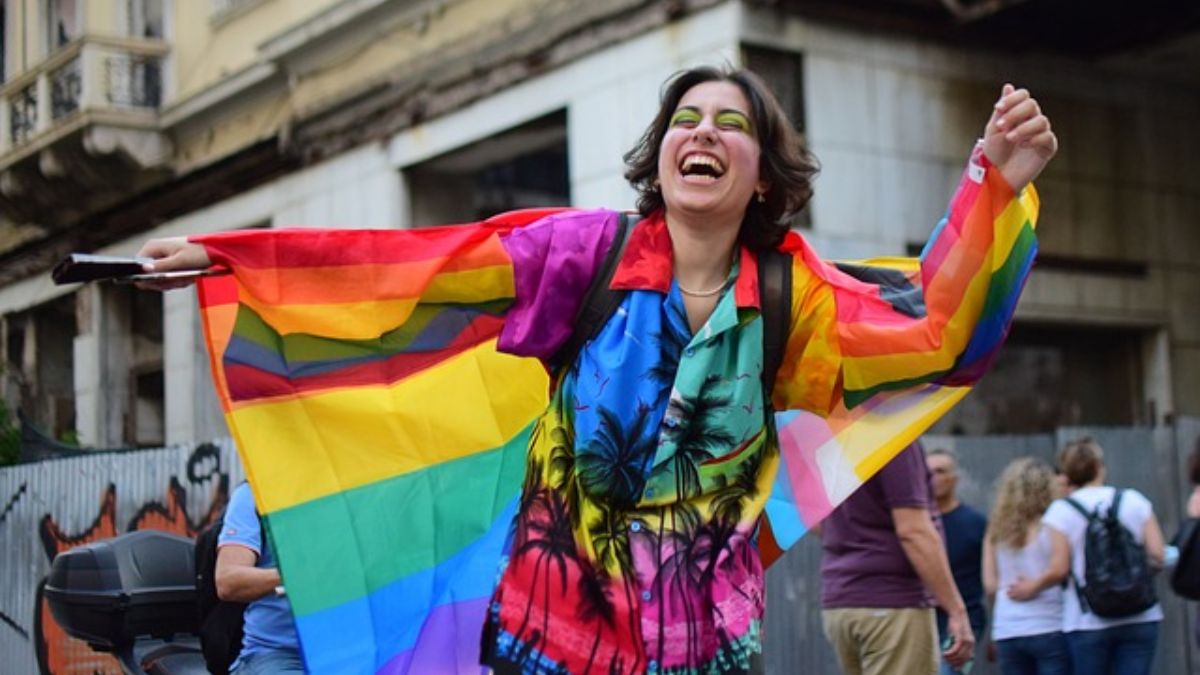“When did you decide this? Is this even a label? I’ve never heard of it. I support you, obviously, but this doesn’t sound real."
These were some of the responses Emma Flint, a 30-year-old from the UK, encountered when she came out as abrosexual in 2020, she shared her experience in an essay published by Metro.
Her discovery of the term came when she stumbled upon a post by Zoe Stoller, a US-based creator, educator, and social worker who advocates for better visibility of the LGBTQ+ community. She said, reading Stoller’s post gave her a profound sense of clarity.
“You know in cartoons when a lightbulb appears above their heads? That’s how it felt when I read their post. Finally, I feel seen,” she explained.
Flint’s story is just one of many shared by abrosexual individuals online. Recently, people on TikTok have been discussing their frustrations and experiences related to this fluid sexual identity.
As Emma and many others continue to find their footing within the term, abrosexuality has become a major topic of conversation on the internet, resonating with those who relate to its meaning.
But what exactly is abrosexuality, and how does it stand apart from other sexualities? Let’s take a closer look.
What is abrosexuality?
Abrosexuality, a relatively new and lesser-known sexual identity, describes a kind of sexual fluidity. It refers to the experience of having fluctuating levels of sexual or romantic attraction throughout one’s life.
For abrosexual individuals, their sexual attraction to different genders can shift over time—sometimes they may feel attraction toward one gender, while at other times, they may experience little or no attraction at all.
Impact Shorts
More ShortsThese changes can happen over varying periods—daily, weekly, or even longer—and encompass attraction to different genders or an absence of attraction altogether. While abrosexual people may feel attraction to more than one gender, the distinguishing factor is the unpredictability and fluidity of those feelings.
Abrosexual is not bisexual
Sexuality is often viewed through fixed labels like heterosexual, homosexual, bisexual, or asexual. These identities tend to be stable, with consistent patterns of attraction. However, abrosexuality challenges these static labels.
While bisexuality or pansexuality involve attraction to multiple genders, abrosexuality is unique because the intensity or direction of attraction is fluid.
For instance, an abrosexual person may feel a strong attraction to one gender for a time, only to see it fade, shifting to another gender—or even experiencing no attraction at all.
Emma shared her struggles that despite explaining her identity to others, many still find it difficult to grasp. “I want people to know that just because you don’t know or understand an identity, it doesn’t make it less authentic,” Emma wrote.
But it isn’t always easy. She frequently encounters remarks like, “Mate, you’re just confused” or “Just say you’re bisexual and be done with it.” Emma refuses to be confined by others’ limited understanding, saying, “I refuse to be boxed in by someone else’s limited knowledge."
The conversation around abrosexuality has gained traction on TikTok, where users are opening up about their experiences. One user wrote, “This is literally me, and I thought I was alone.” Another shared, “Abro is quite literally my favourite label and makes me feel so safe and affirmed."
ALSO READ: Are you a symbiosexual? The new sexual identity that everyone's talking about
Gen Z leads the way
While abrosexuality can be experienced by people of all ages, it is most commonly identified among younger generations, particularly Gen Z (1997-2012).
With access to a wider vocabulary that describes a range of sexual orientations, Gen Z has been at the forefront of embracing terms like abrosexuality. Having grown up in an era where discussions around sexuality and gender identity are becoming more open and inclusive with the coming generations.
While, millennials also represent a significant portion of those who identify with fluid sexual orientations, but it’s Gen Z that is driving the movement.
Challenges faced by abrosexuals
Abrosexuals often face unique challenges in dating and relationships because of the fluid nature of their attractions. Some may find it difficult to commit to long-term relationships, worried that shifts in their attraction might impact their bond with their partner.
However, it’s important to note that being abrosexual doesn’t rule out the possibility of healthy, committed partnerships. With open communication, mutual understanding, and a willingness to adapt, many abrosexual individuals navigate their relationships successfully.
For Emma Flint, discovering the term abrosexuality has been empowering. She expressed the relief of finally understanding herself, saying, “I’m no longer nervous about my sexuality because it makes sense to me, and in the end, that’s all that really matters.”
With input from agencies


)

)
)
)
)
)
)
)
)



